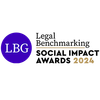Artificial intelligence (AI) is making waves in every area of business, and intellectual property is no exception. Many countries are in agreement that AI-generated art and literature is not protected by copyright, and courts have rejected the concept put forward in the DABUS cases that an idea devised by an AI can be patented (the UK Supreme Court decision on this is eagerly awaited).
But the extent to which an AI itself is patentable varies across jurisdictions, because of differences in the examination of computer-implemented inventions, and it has often been difficult to obtain protection in the UK. Last week a judgement has been handed down from the English High Court that could completely change that.
Protecting computer-implemented inventions
The law in the UK on patenting computer-implemented inventions has been settled for many years. While the UK Patents Act 1977 states that “computer programs as such” are excluded from patentability, it is possible to protect software if it can be shown that the contribution made by the invention has a technical effect. The question of “what is technical” is the point on which many a patent attorney’s arguments have hinged, but it is generally the case that something additional and external to the computer program is required.
The UK Intellectual Property Office (UKIPO) considers an AI to be, basically, a type of computer program, and therefore examines AI-implemented inventions using the same principles. To be patentable, the AI must have a technical effect on a process or problem that is external to itself. However, the UKIPO may have to change this position, following the Emotional Perception judgement.
Emotional Perception AI Ltd v Comptroller-General
Emotional Perception AI Ltd filed a patent application that claims training an artificial neural network (ANN) to perceive semantic similarity or dissimilarity between media files, and then using the trained ANN to identify files that are similar to a given file. The UKIPO rejected the application as unpatentable, stating that the contribution of the invention related wholly to a computer program.
However, on appeal the judge found that the ANN is not a computer program; rather, it is operating at a different level from the software, in the same way as a hardware-implemented ANN. Further, he found that the production of an ANN may itself be a technical effect sufficient to overcome the patentability hurdle.
Protecting your AI inventions
This case opens the door to much broader protection of AI in the UK. Talk to our specialised and experienced attorneys at Murgitroyd about protecting your innovations.



















